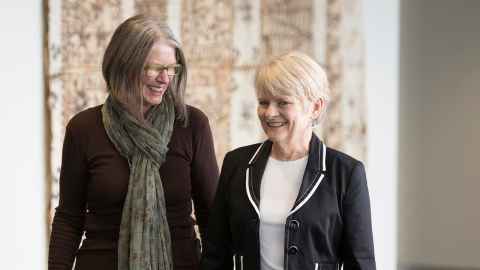Why we should retain eligibility to NZ Super at age 65
7 June 2023
Instead of adding more hardship onto those who are already deprived by raising the age of NZ Super eligibility, we would do better to increase the top tax rate, writes Claire Dale.

Opinion: The state age pension, New Zealand Superannuation (NZ Super), is individual, inclusive, non-contributory and gender-blind.
At age 65, if a person has been resident in New Zealand for 10 years since the age of 20, with five of those years since the age of 50, they qualify for NZ Super, whether or not they have ever been employed or paid tax.
But a comfortable and secure retirement in New Zealand depends largely on owning a mortgage-free home.
New Zealand is a low-income economy. Income impacts a person’s ability to save for a deposit on a home, and income impacts longevity. Higher income is a major driver of higher life expectancies.
Research from American Inequality found the wealthiest Americans live to 87 years on average, but in the poorer areas, life expectancy averages around 67 years.
Bringing that research home, we know that on average, Māori and Pasifika families have lower incomes.
Stats NZ reports that average annual household equivalised disposable income by ethnicity for the year ended June 2022 was $55,446 for Pākehā, $46,579 for Māori and $43,897 for Pacific peoples.
Clearly that difference in incomes compounds over a working life of 45 years, from age 20 to NZ Super eligibility at age 65.
As well as ethnic gaps in income, there are ethnic gaps in wealth, even after removing the effects of the different age structures. In 2015, Stats NZ found the median net wealth of Pākehā was more than three times that of the Asian population, five times that of Māori, and nine times greater than Pacific peoples.
Although ethnic inequalities in New Zealand have decreased in the 21st century, and there are marked differences within populations, on average Māori and Pacific people still have lower incomes, worse housing and poorer health than Pākehā.
For example, only 21 percent of Pacific peoples own or partly own a home as of 2018, compared to 52 percent for New Zealanders overall.
And lack of access to affordable, dry and warm housing impacts negatively on mental and physical health.

Stats NZ 2021 wellbeing statistics include four aspects of life with a strong relationship with wellbeing: excellent or very good health; more than enough or enough money to meet everyday needs; not felt lonely in the last four weeks; and no major problems (cold, damp, mould) with their home.
The survey showed 24.2 percent of people with European ethnicity had good outcomes in all four aspects of wellbeing compared with 13.0 percent of Māori, 10.2 percent of Pacific peoples, and 10.4 percent of people with Asian ethnicity.
Sadly but not surprisingly, the wellbeing statistics also showed 7.7 percent of women were more likely to have zero good outcomes compared to only 4.4 percent of men. In 2022, research in New Zealand showed men earn on average 10 percent more than women.
As well as contributing to a lack of good outcomes, the gender pay gap contributes to women’s comparatively smaller accumulations of retirement savings, and likelihood of higher rates of older-age poverty and deprivation.
In all age, gender and ethnic groups, people living more deprived lives have shorter life expectancy and higher rates of hospitalisation than those who are less deprived.
Given this reality, it would be grossly unfair to delay everyone’s access to the age pension. It would also be unwise, as the demand for hospital care would likely be increased by such delay.
The individual and public price of delaying access to NZ Super by increasing the age of eligibility from 65 to 67 years could swiftly outweigh the benefits.
If the annual cost of NZ Super is the concern, we would do better to look at the tax structure and increase the top tax rate rather than add more hardship onto those who are already deprived.
This opinion piece was first published by Stuff. It reflects the opinion of the author and not necessarily the views of Waipapa Taumata Rau University of Auckland.
Media contact:
Sophie Boladeras, media adviser
M: 022 4600 388
E: sophie.boladeras@auckland.ac.nz